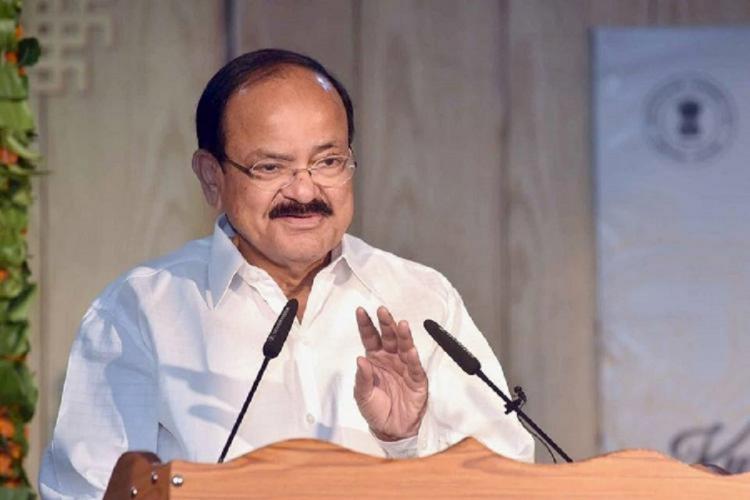NEW DELHI : Vice President M Venkaiah Naidu on Friday called for a mass movement to promote digital literacy and urged all stakeholders, including technological and educational institutions, to play a leading role in achieving the desired results.
Virtually launching the Adi Shankara Digital Academy, the vice president said information was the main commodity in the present-day knowledge society, and added that whoever has quick access to information, has the advantage.
He described ‘digitalisation’ as the medium to access such information.
Drawing attention towards unprecedented disruptions caused by the COVID-19 pandemic, Naidu said it has forced millions of students out of classrooms due to closure of schools, and that the world community is trying to address the challenge by adopting online education.
He said technology provides us an opportunity to transform teaching and learning and expressed the need to constantly update and develop education models that suit the new era’s demands in view of the fast-changing technology.
Enumerating several benefits of online education, the vice president said it can enable access to quality and affordable education in remote areas.
It also allows for a personalised learning experience and is especially helpful for groups such as working professionals and housewives, who might not be able to attend regular courses, he said.
Because of these advantages, Naidu opined, online education is likely to remain a preferred choice in the post-pandemic period as well.
There is no doubt that the pandemic has changed the education landscape forever, he said, according to an official statement.
Observing that even before coronavirus, the adoption of technology in education was gaining momentum, Naidu said the global EdTech sector is attracting billions of dollars in investments and offers a huge opportunity to not only learners but to education entrepreneurs as well. He exhorted the youth to come forward and innovate to tap the potential offered by this sector.
Observing that the pandemic has forced us to learn how to keep the socio-economic process going in times of adversity, the vice president said this experience has thrown up questions like how many are equipped to live the digital way.
“Issues of availability of infrastructure, access to the required tools like computers and smart phones, speed and availability of internet came to the fore for which solutions need to be found out,” he observed.
In a word of advice, the vice president said there was a need to adopt a realistic approach in terms of what online education can deliver and what it cannot.
“Online classes facilitate better teacher-student interaction through chat groups, video meetings, voting and document sharing, but it cannot replace the personal touch and warmth of a classroom,” he said.
Referring to a recent study by Azim Premji University, Naidu underlined that a vast majority of teachers and parents consider the online mode of education inadequate and less effective.
He opined this could be partly due to hasty adoption of online education necessitated by COVID-19 that has left much to be desired in terms of quality.
Stressing on the importance of face-to-face classes and schools, he said a school provides a socialising space to students and enables them to imbibe values and discipline.
Physical fitness, sports and yoga are important elements of holistic development of the students which cannot be attained by online education alone, Naidu said.
Calling for bridging the digital divide between rural and urban areas, he wanted conscious policy decisions to support online education infrastructure by ensuring internet connectivity.
Stating that the evolution of human civilisation has been a saga of innovation and use of tools for improving the ease and the comfort of living, Naidu said science and technology have made a huge difference in the way we live.
“Digitalisation is the order of present-day life. E-education, e-health, e-commerce and e-governance are the virtual reality now,” he added.
Talking about the extensive use of digital technology in different sectors ever since the pandemic disrupted our normal routine, the vice president praised the judiciary for digital hearing and disposal of cases.
He specially complimented the Supreme Court for taking the lead in this regard and said this is the way forward.
Naidu said e-medicine has found new traction and e-delivery of government services and entitlements in our country is proving to be effective with huge gains. “In essence, this is the era of ‘digital life’. Virtual reality is the new reality,” the vice president added. (AGENCIES)
Trending Now
E-Paper


